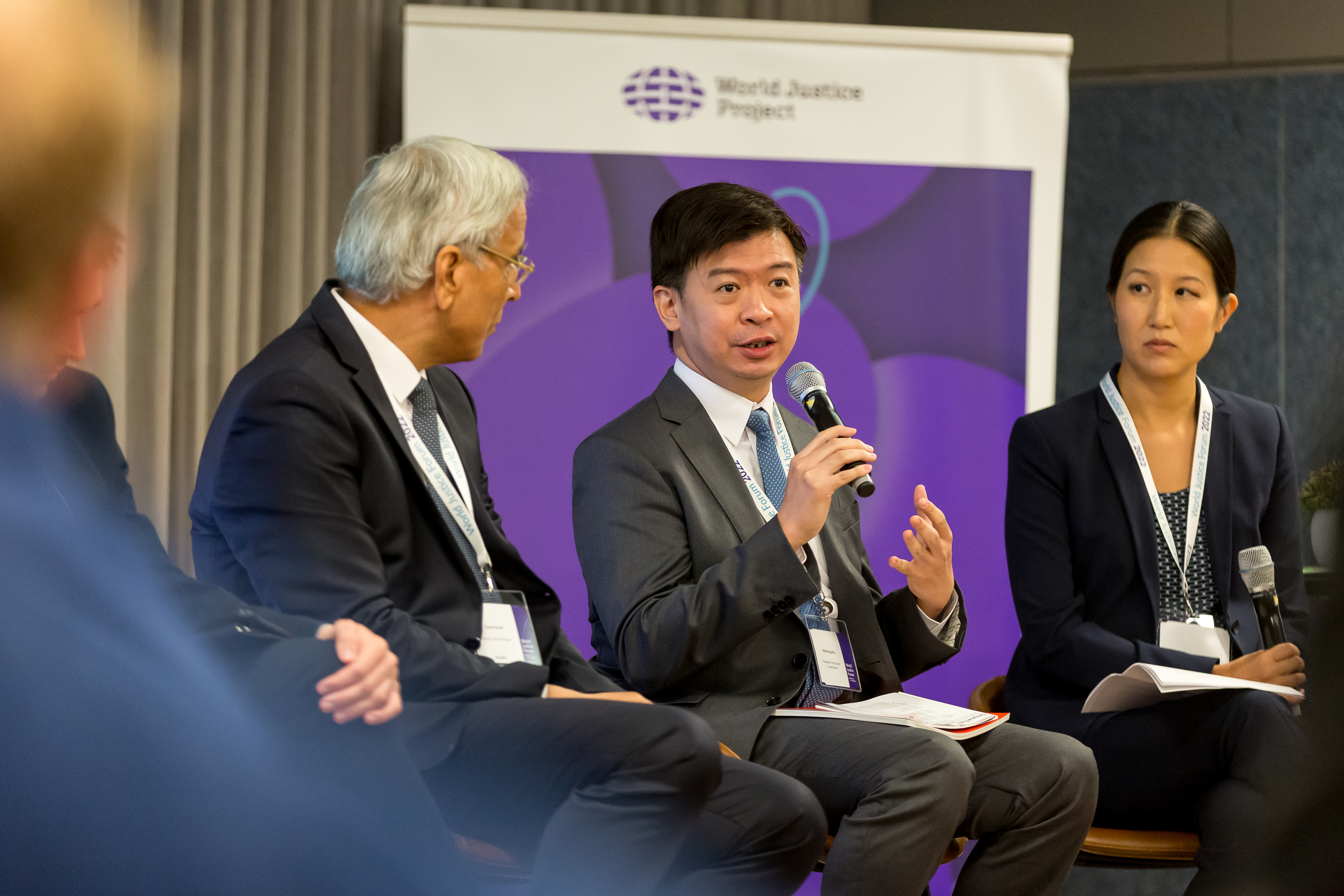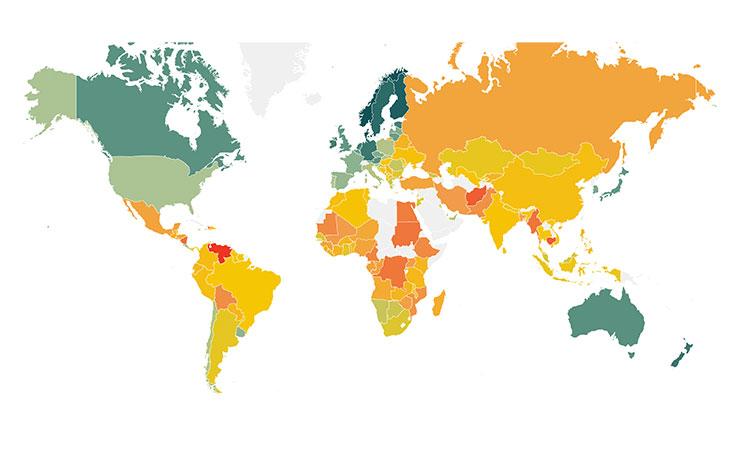

By Abigail Boyce, Program Assistant, World Justice Project
Corruption is on the rise globally, and the COVID-19 pandemic has exacerbated this trend and demonstrated its urgency. The 2021 WJP Rule of Law Index shows that 66% of the 139 countries covered by the Index declined in absence of corruption in 2021 and 58% have declined over the last six years. Meanwhile, Transparency International’s most recent Corruption Perceptions Index states that 131 out of 180 countries studied have made “no significant progress against corruption in the past decade.”
To address this mounting challenge, The World Justice Forum 2022 convened anti-corruption experts from around the world in The Hague and online to discuss the root causes of corruption, its existential threat to the rule of law, and the methods that prove most effective in combating it.
Grand corruption—typically defined as the abuse of high-level power for personal gain—was identified throughout the Forum as a central issue. Participants cited beneficial ownership transparency as a promising means for piercing secret and unaccountable corporate practices. During the Forum’s Opening Plenary discussion, Attorney-General and Minister of Justice of Sierra Leone Mohamed-Lamin Tarawalley used the example of foreign investing in Africa to emphasize that corruption is a cross-border problem and that beneficial ownership secrecy leaves the door open to high levels of corruption.
To illustrate the vast impact corruption can have on health and safety, Serena Ibrahim, a Lebanese youth activist, remarked “I knew that corruption kills, but I never imagined that it can devastate or erase a capital in one second.” Ibrahim was referring to the August 2020 Beirut Port explosion, but her statement points to the widespread scope and danger of grand corruption. Grand corruption is increasingly becoming an economic issue as well, with the World Economic Forum estimating that the cost of corruption is equal to 5% of global GDP.
Another common theme was the importance of using data and technology to increase transparency and hold institutions accountable. For example, UNDP’s ASEAN Judicial Integrity Network held a working session entitled “Cultivating Judicial Leadership in the Tech Evolution of Courts,” which focused on emerging technology’s role in the justice sector. The panel discussed potential gaps in access to justice which could result from an over-dependence on technology, as well as the advantages of using electronic case management to increase judicial transparency and accountability. In a working session organized by the Chandler Foundation entitled Corruption Measurement as an Agent of Change, experts discussed various efforts for measuring corruption. This conversation emphasized that for quantitative measurements of corruption to advance open government, practitioners must work directly with officials to use the data to inform policy.
Several projects showcased in the World Justice Challenge Anti-Corruption and Open Government category focused on the use of monitoring and open data. Transparency Information Technology Initiative (TransparencIT), the category winner, created Nigeria’s first central database of corruption cases moving through the courts system, which it uses to make recommendations to address trial violations and delays. TransparencIT’s work has led to a decrease in the average duration of corruption trials from eight years to between three to four years. Other finalists, like Fundación Ciudadanía y Desarrollo (FCD), showcased projects marrying open data and political process monitoring to hold institutions accountable. FCD works to increase government transparency by publishing and monitoring data from Ecuador's National Assembly, which has led to greater legislative openness and increased civic participation.
The necessity of cross-sector collaboration to combat corruption and get the Sustainable Development Goals (SDGs) back on track was also at the forefront of Forum discussions. There was broad consensus amongst the participants that corruption cannot be sufficiently addressed without being closely tied to achieving the SDGs. One session hosted by the B Team, the International Service for Human Rights, and the Business & Human Rights Resource Centre entitled “Building Partnerships Across Society to Protect Civic Freedoms and Democracy” focused on the critical role businesses and multinational corporations can play in advancing the SDGs by making policy commitments to protect anti-corruption and human rights defenders. A joint session held by the Global Compact Network Netherlands, VNO-NCW, and UN Global Compact, “How to Engage Business in Transforming Governance,” emphasized the multidisciplinary nature of SDG 16, which focuses not only on access to justice but also on illicit financial flows, accountability, access to information, and more. Speakers argued that corruption will persist if it is not seen as part of a larger goal of achieving peace and justice.
These intensive discussions and more led to a variety of outcomes and action plans. Forty Forum participants representing more than 20 countries produced the “Declaration on Whistleblower Rights” which calls on all states “to enact laws that guarantee automatic and immediate protection and compensation for employees who report misconduct and dangers in the public interest.” During a working session on the proposed establishment of an International Anti-Corruption Court (IACC) held at the Carnegie Peace Palace, global leaders such as Dutch Foreign Minister Wopke Hoekstra and former Prime Minister of Poland Hanna Suchoka redoubled their commitments to help create an International Anti-Corruption Court to handle cases where domestic remedies are unavailable. And the International Legal Assistance Consortium (ILAC) released their Judges as Peacebuilders discussion papers, which cover the importance of strengthening judicial independence and providing adequate resources for judges to conduct corruption cases.
The World Justice Forum Final Statement, which summarizes essential ideas from the Forum and was shared during the Closing Plenary, calls on states to implement an array of anti-corruption measures, including agreeing upon a legal definition of grand corruption, strengthening the independence of the judiciary and Supreme Audit Institutions, researching the intersection of corruption and discrimination, and utilizing technology to increase government transparency. The momentum created at the Forum and the goals jointly envisioned by actors from around the globe are the starting points for real change to combat corruption, increase government accountability, and advance the rule of law.






